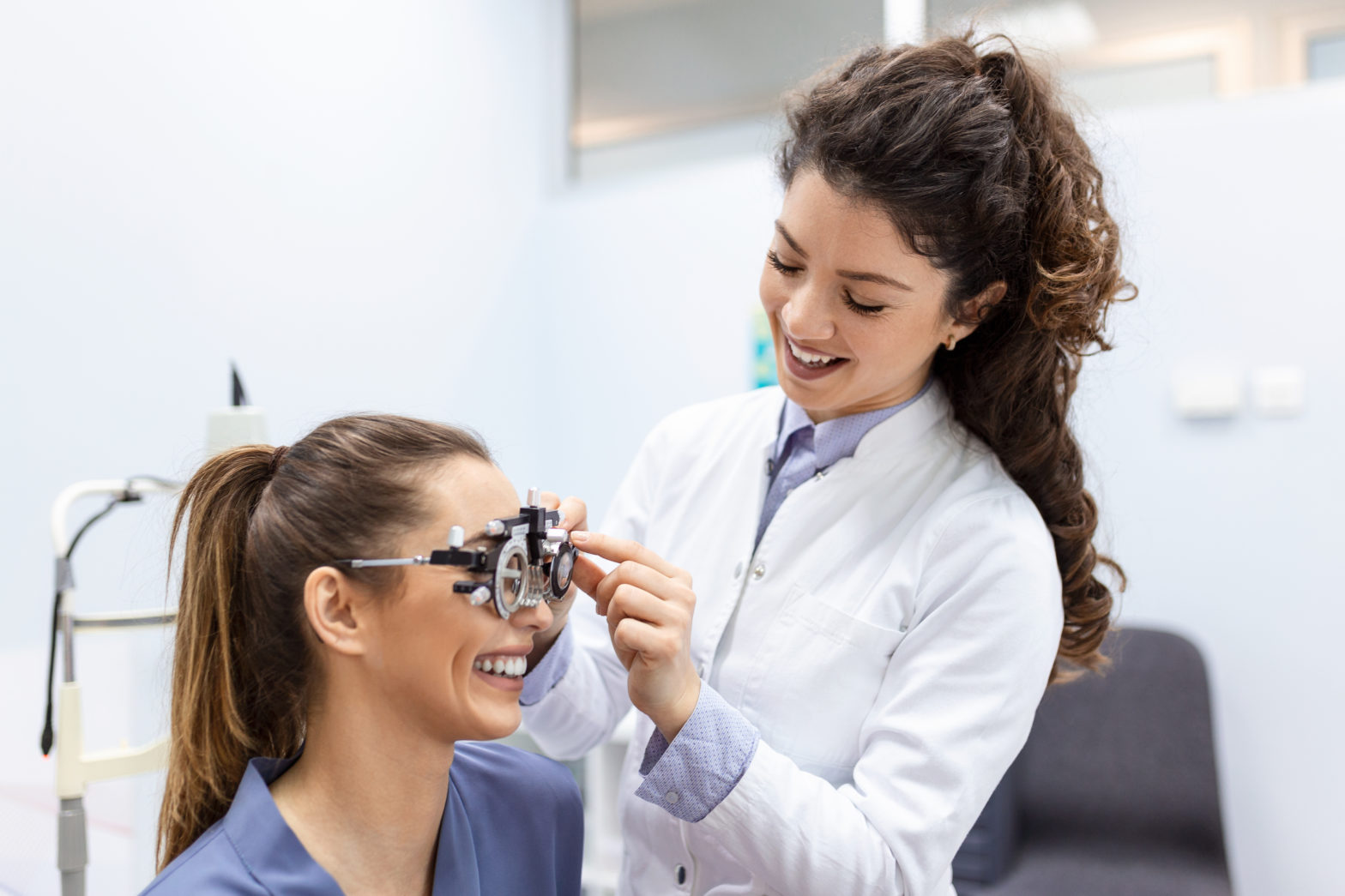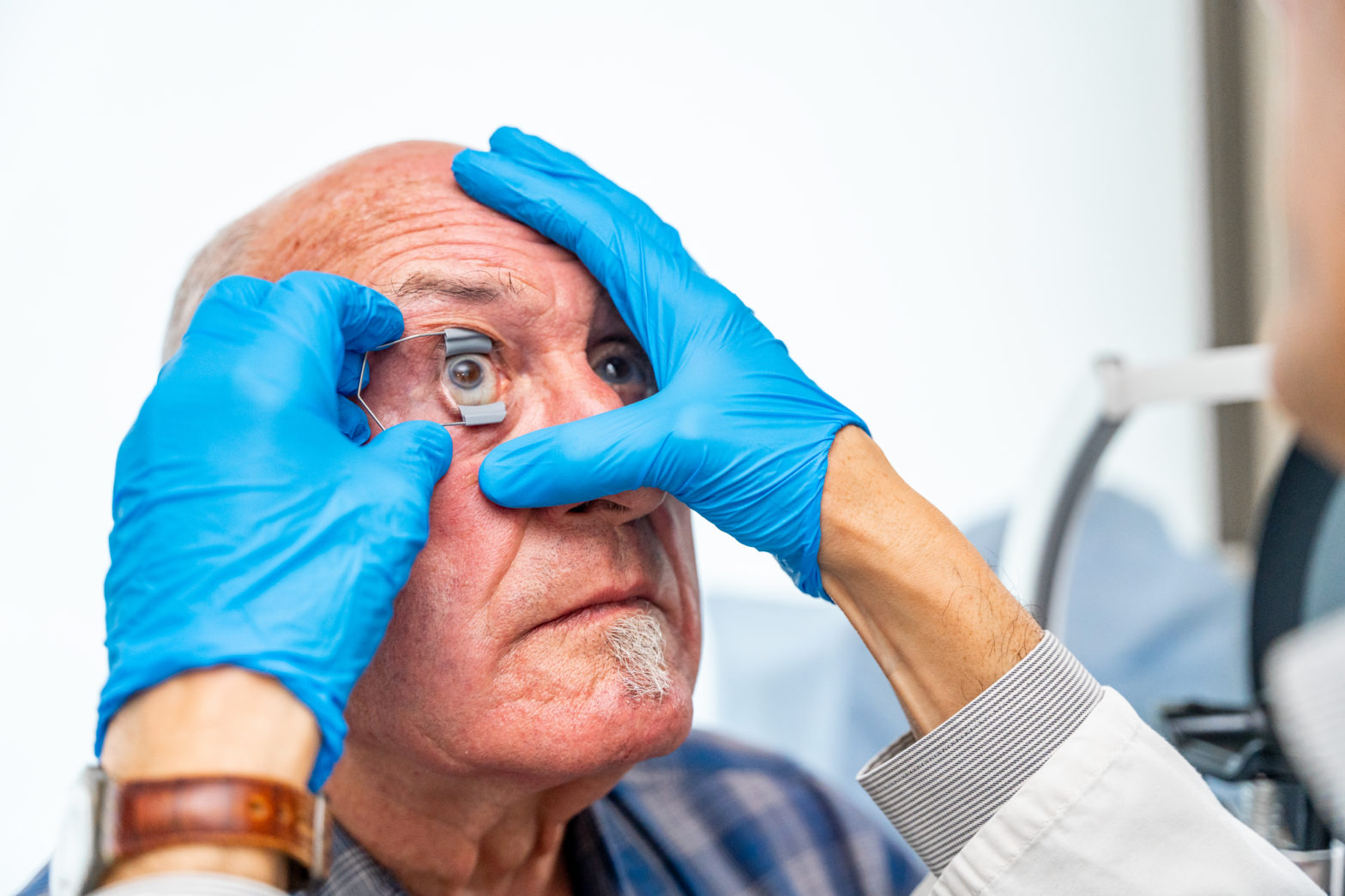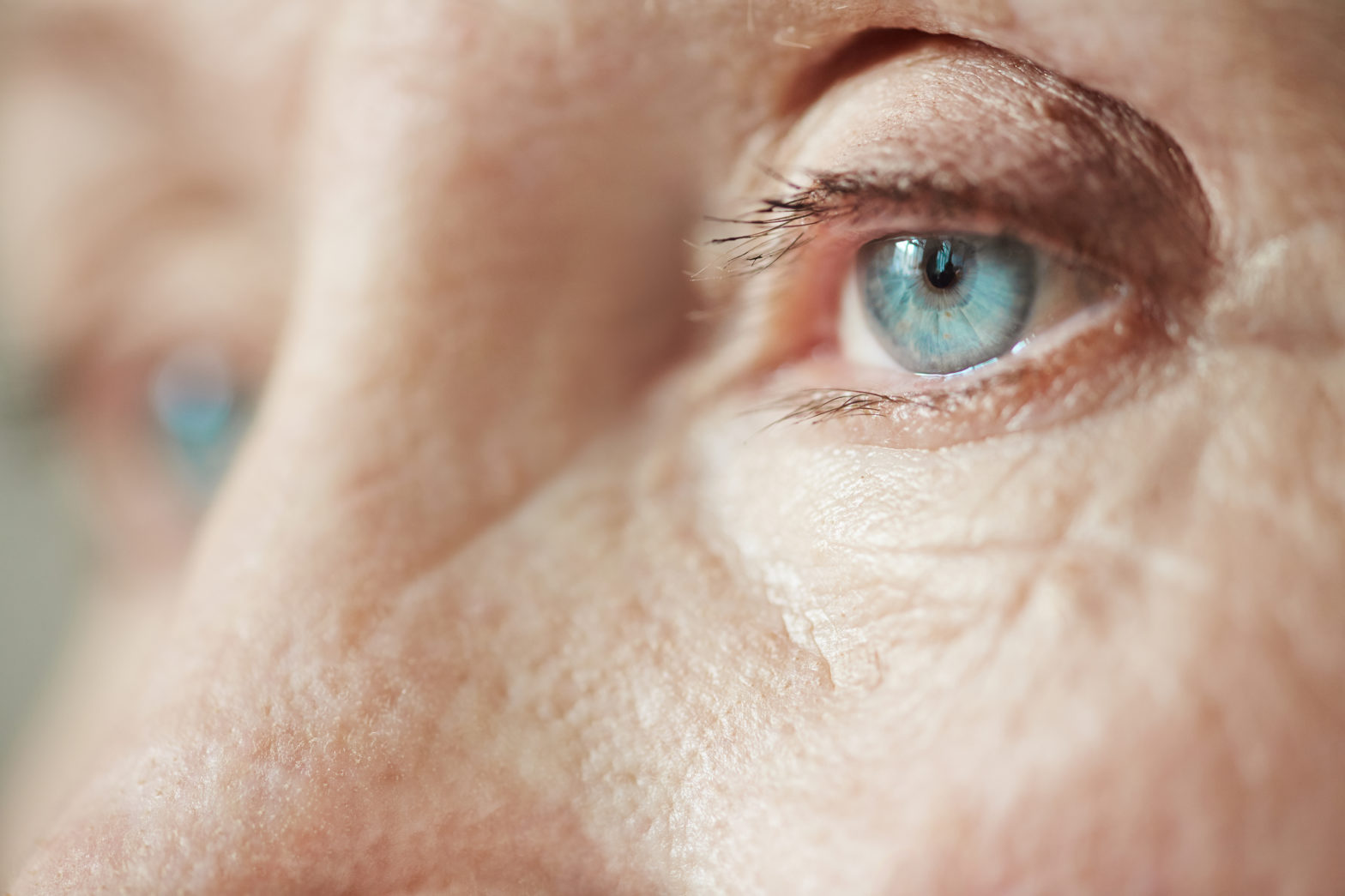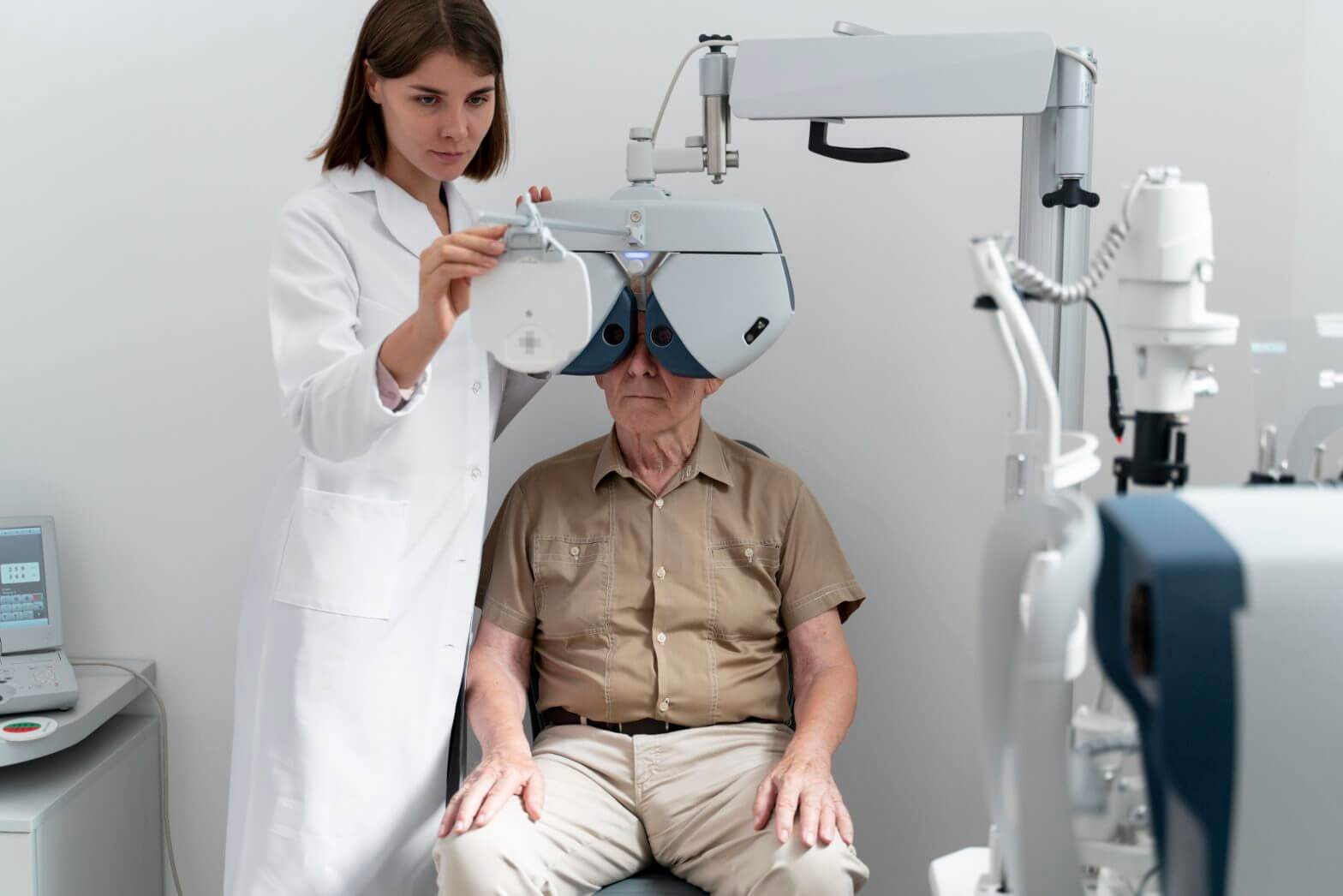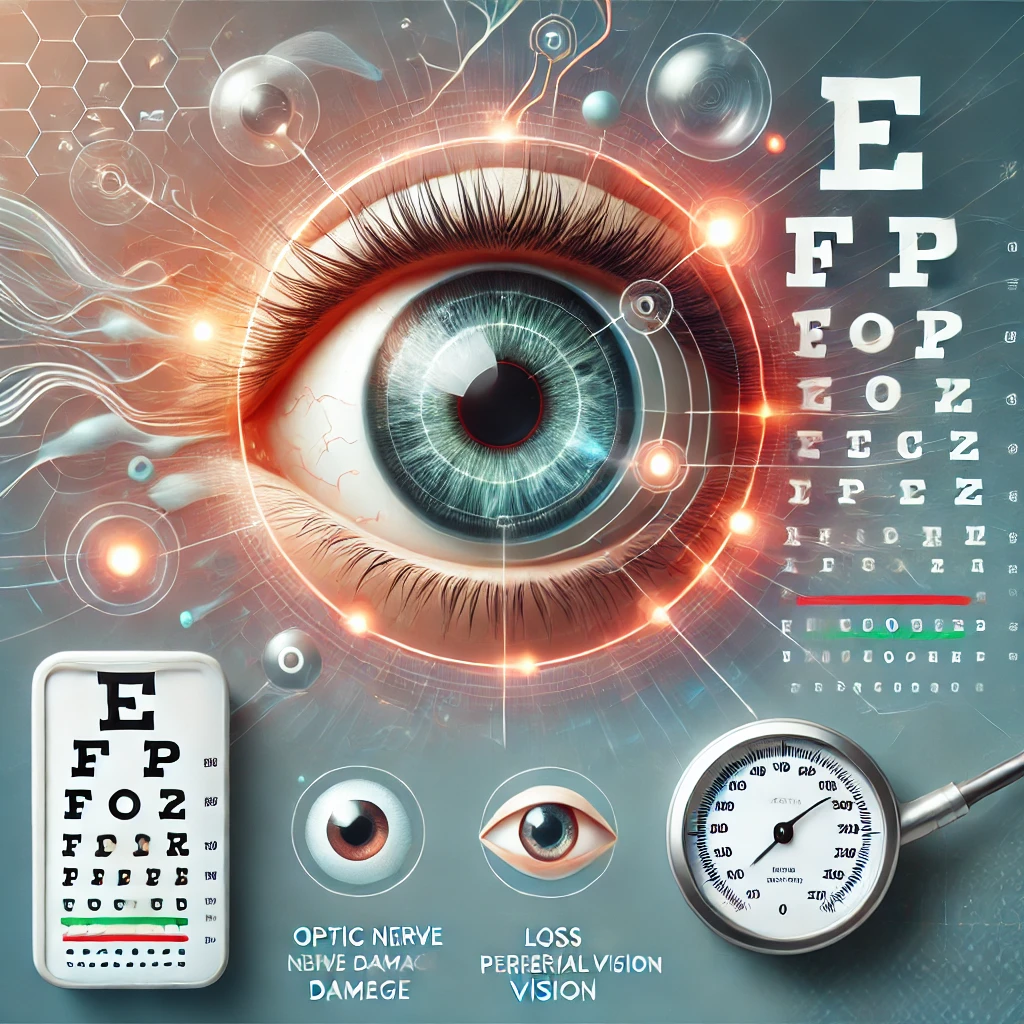In today’s fast-paced world, health challenges are on the rise, and high blood pressure, or hypertension, stands out as one of the most prevalent and dangerous conditions affecting millions globally. What many people may not realize is that hypertension doesn’t only affect the heart and kidneys but also has profound impacts on the eyes. This connection between high blood pressure and eye health is often overlooked, yet it can lead to significant consequences, including vision loss and blindness. In this blog, we will explore in-depth how high blood pressure affects the eyes, the conditions that arise from it, and the steps you can take to safeguard your vision.
What Is High Blood Pressure?
Before delving into the effects of hypertension on eye health, it’s important to understand what high blood pressure is. Blood pressure refers to the force exerted by circulating blood against the walls of the arteries. When this force is consistently too high, it puts undue stress on the arteries and vital organs, including the eyes. A normal blood pressure reading is generally around 120/80 mmHg. Anything above 140/90 mmHg is considered hypertensive, and higher readings, especially over prolonged periods, can cause various health complications.
How Does High Blood Pressure Affect the Eyes?
The eyes are one of the most delicate organs in the body, with an intricate network of blood vessels that nourish the retina, optic nerve, and other parts essential for vision. High blood pressure can damage these vessels in multiple ways:
Constriction of Blood Vessels
High blood pressure causes the blood vessels in the retina (the light-sensitive layer at the back of the eye) to thicken, narrow, or even rupture. This can limit blood flow to the eye, damaging vital tissues.
Increased Pressure in the Eye
Elevated blood pressure can lead to increased intraocular pressure, heightening the risk of glaucoma, a condition that can permanently damage the optic nerve.
Formation of Blood Clots
Hypertension makes the blood more prone to clotting. Clots in the eye’s blood vessels can lead to sudden vision loss and other complications.
Damage to the Optic Nerve
The optic nerve is the key link between the eye and the brain, transmitting visual information. When blood flow to this nerve is reduced or cut off due to hypertension, it can cause severe and sometimes irreversible vision problems.
Now, let’s take a closer look at the specific കണ്ണിൻ്റെ അവസ്ഥ caused by high blood pressure.
1. Hypertensive Retinopathy
One of the most common eye conditions resulting from high blood pressure is ഹൈപ്പർടെൻസീവ് റെറ്റിനോപ്പതി. This occurs when the retina’s blood vessels are damaged due to sustained high pressure. The retina plays a crucial role in vision by converting light into signals sent to the brain, and damage here can severely impact sight.
Symptoms of Hypertensive Retinopathy
- Blurred or dim vision
- തലവേദന
- Visual disturbances, such as seeing floaters or dark spots
2. Double vision
In the early stages, hypertensive retinopathy may not cause noticeable symptoms, but as it progresses, vision can deteriorate. Regular eye exams are essential, especially if you have a history of high blood pressure.
ചികിത്സ
Managing hypertensive retinopathy starts with controlling your blood pressure. Medications, lifestyle changes, and regular monitoring are key to preventing further damage. In more severe cases, laser therapy may be required to repair the blood vessels and restore vision.
3. Choroidopathy
Another lesser-known condition linked to high blood pressure is choroidopathy, which involves fluid buildup beneath the retina, caused by the rupture of tiny blood vessels in the eye. The retina becomes detached from the underlying tissues, leading to distorted vision or even permanent loss of sight if not treated promptly.
Symptoms of Choroidopathy
- Sudden visual distortion
- Seeing dark spots or shadows
- മങ്ങിയ കാഴ്ച
Choroidopathy typically affects younger patients experiencing a sudden spike in blood pressure, often during a hypertensive crisis. It can be temporary if the pressure is controlled quickly, but if the fluid persists, permanent vision loss may occur.
ചികിത്സ
Treatment primarily involves managing blood pressure to stop further damage. In more severe cases, surgery may be needed to reattach the retina or drain the excess fluid.
4. Optic Neuropathy
When high blood pressure reduces blood flow to the optic nerve, it leads to a condition called optic neuropathy. The optic nerve is responsible for carrying visual information from the eye to the brain, and without adequate blood flow, it can suffer from ischemia (lack of oxygen), which causes the nerve to deteriorate.
Symptoms of Optic Neuropathy
- Sudden vision loss
- Pain when moving the eyes
- Visual field defects, such as blind spots or tunnel vision
- Optic neuropathy is a serious condition that can lead to permanent vision loss.
It is crucial to get immediate medical attention if any of these symptoms appear.
ചികിത്സ
Since optic neuropathy results from lack of blood flow, treatment focuses on controlling high blood pressure to prevent further damage. In severe cases, corticosteroids or other medications may be prescribed to reduce inflammation around the optic nerve.
5. Glaucoma and Hypertension
While high blood pressure doesn’t directly cause glaucoma, it can contribute to increased pressure inside the eye (intraocular pressure), a key factor in developing certain types of glaucoma. ഗ്ലോക്കോമ is a group of diseases that damage the optic nerve, often leading to irreversible vision loss if not managed in time.
ഗ്ലോക്കോമയുടെ ലക്ഷണങ്ങൾ
- Gradual loss of peripheral vision
- Tunnel vision in advanced stages
- Eye pain or pressure
- വിളക്കുകൾക്ക് ചുറ്റും ഹാലോസ്
Hypertension can also worsen pre-existing glaucoma by damaging the blood vessels that supply the optic nerve, reducing the eye’s ability to cope with the increased pressure.
ചികിത്സ:
Treatment for glaucoma usually involves eye drops to lower intraocular pressure. In more advanced cases, laser surgery or other procedures may be required. Since hypertension can exacerbate glaucoma, controlling blood pressure is crucial for those at risk.
6. Age-Related Macular Degeneration (AMD)
While high blood pressure doesn’t directly cause age-related macular degeneration (AMD), it is a significant risk factor. AMD affects the macula, the central part of the retina responsible for detailed vision. Poor blood flow due to high blood pressure can worsen the condition, especially in older adults.
Symptoms of AMD
- Difficulty reading or recognizing faces
- Dark spots in central vision
- Blurry or distorted vision
Though hypertension is not the primary cause of AMD, it can accelerate the condition’s progression by restricting blood flow to the macula. Left untreated, AMD can lead to blindness.
ചികിത്സ
There is no cure for AMD, but treatments such as injections, laser therapy, and nutritional supplements can slow its progression. Controlling high blood pressure is critical in managing AMD and preserving vision.
Preventing Eye Damage from High Blood Pressure
Given the significant risks high blood pressure poses to your eye health, it’s essential to adopt preventive measures to protect your vision:
1. പതിവ് നേത്ര പരിശോധനകൾ
One of the best ways to prevent serious eye complications from high blood pressure is to schedule regular eye exams. An ophthalmologist can detect early signs of hypertensive retinopathy or other conditions before they cause permanent damage. If you already have high blood pressure, it’s crucial to let your കണ്ണ് ഡോക്ടർ know, as they may want to monitor your eyes more closely.
2. Monitor Blood Pressure
Keeping your blood pressure within a normal range (ideally below 120/80 mmHg) is the most effective way to protect your eyes and overall health. Use a home blood pressure monitor if necessary, and follow your doctor’s advice on lifestyle changes or medications.
3. Adopt a Healthy Lifestyle
Diet and exercise play a crucial role in maintaining healthy blood pressure levels. A diet rich in fruits, vegetables, whole grains, and lean proteins, along with regular physical activity, can help lower blood pressure naturally. Limiting sodium, caffeine, and alcohol intake also helps prevent blood pressure spikes.
4. Quit Smoking
Smoking increases blood pressure and damages blood vessels throughout the body, including those in the eyes. Quitting smoking can significantly reduce your risk of eye damage and other serious health problems.
5. Manage Stress
Chronic stress can contribute to high blood pressure, and learning to manage it effectively can benefit both your heart and your eyes. Practices such as meditation, yoga, or deep breathing exercises can help lower blood pressure and reduce the risk of complications.
High blood pressure is a silent killer that can damage your eyes and cause permanent vision loss if not properly managed. By understanding the connection between hypertension and eye health, you can take proactive steps to protect your sight. Regular eye exams, blood pressure control, and a healthy lifestyle are key to maintaining good eye health, especially for those with a history of hypertension. Early detection and treatment of eye conditions related to high blood pressure can make all the difference in preserving your vision and preventing blindness.
In today’s digital age, where stress levels and unhealthy lifestyles contribute to rising hypertension cases, protecting your eyes from the impact of high blood pressure has never been more important. Take charge of your health today, and safeguard your vision for tomorrow.

